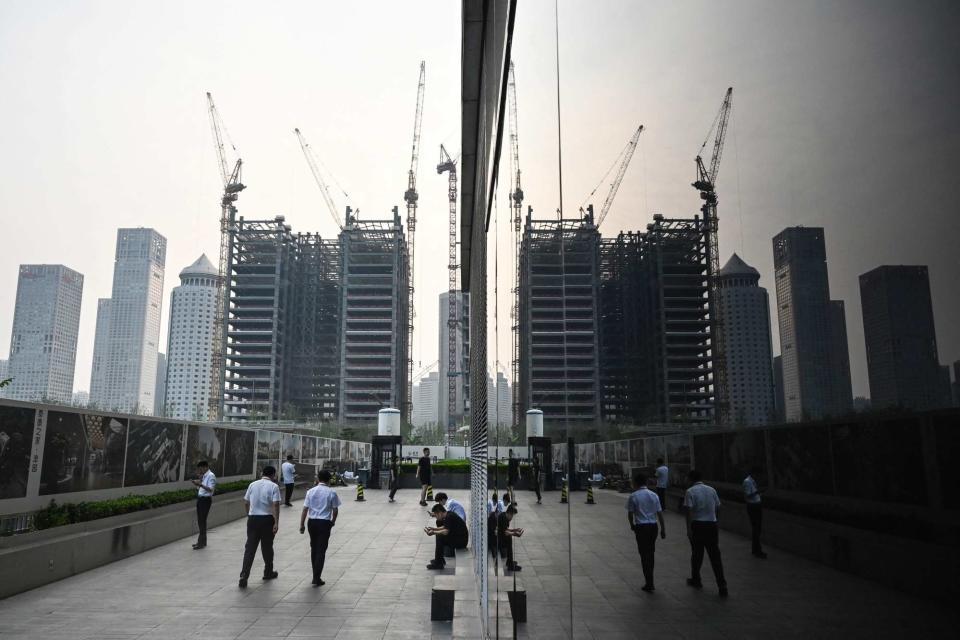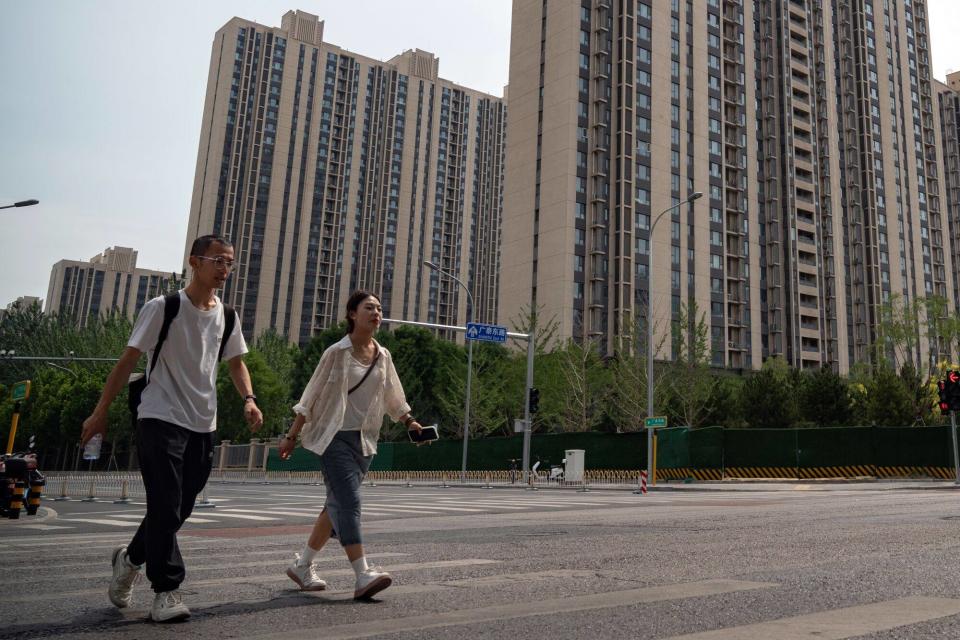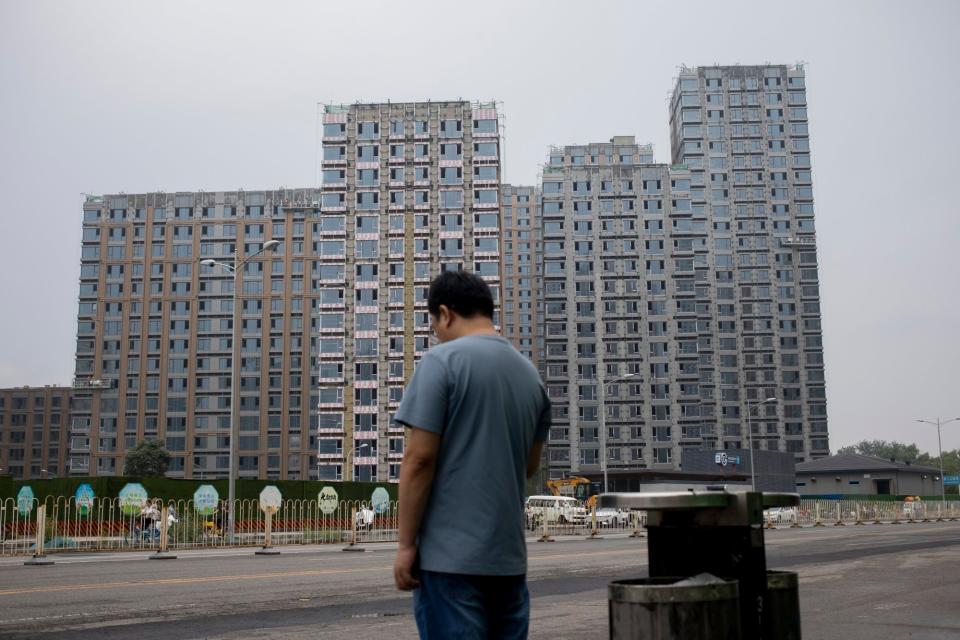Li Wen, a human resources director at a state-owned enterprise in Nanchang, Jiangxi province, paid off an outstanding 200,000 yuan (US$28,170) on her home loan ahead of schedule in January, soon after she received her annual bonus at work.
The 36-year-old had been repaying her loans, totalling 600,000 yuan, in advance for the past few years, even after the interest rate was reduced to 4.3 per cent from the original 5.39 per cent following a few rounds of rate cuts since last year.
"Depositing the money in banks does not do anything for me," Li said. "Deposit rates are far lower, and we do not have any ideal high-yield investment options."
Do you have questions about the biggest topics and trends from around the world? Get the answers with SCMP Knowledge, our new platform of curated content with explainers, FAQs, analyses and infographics brought to you by our award-winning team.
"I would rather pay my loans earlier to save the interest cost, especially when salary and job cuts are getting common."
Li's concerns are shared by many homeowners in China, who had bought homes in a red-hot market in high hopes of appreciation, before prices started to slide.
A construction site in Beijing. Photo: Agence France-Presse alt=A construction site in Beijing. Photo: Agence France-Presse>
The Chinese property market, once a major pillar of the national economy, has been in the doldrums since August 2020, when the government put in place a policy dubbed "the three red lines", aimed at curbing a borrowing binge by property developers.
Since then, some homeowners, suffering from heavy loan burdens and an uncertain economic outlook, sold their homes. Others, like Li, saved up and took advantage of interest rate cuts to pay down mortgages or home loans.
This year, the People's Bank of China has twice lowered the five-year loan prime rate, which commercial banks use as a benchmark to adjust their mortgage rates, by a total of 35 basis points to 3.85 per cent. The central bank has also lifted the lower cap for mortgages on new and second-hand homes nationwide.
That led dozens of Chinese cities to cut their mortgage rates to 3.2 per cent, and some others to below 3 per cent. The average rate for newly issued mortgages was 3.45 per cent in June, down from 4.27 per cent last September, according to government data.
Homeowners seized the chance.
In each month last year, an average of 450 billion yuan worth of mortgages was paid off prematurely, according to data compiled by Australia and New Zealand Banking Group (ANZ). That number rose to 600 billion yuan in the first seven months of this year, equivalent to 15 per cent of China's retail sales or 12 per cent of the population's disposable income during the period.
Residential buildings in Beijing. Photo: Bloomberg alt=Residential buildings in Beijing. Photo: Bloomberg>
Outstanding mortgages in China dropped to 37.79 trillion yuan as of the end of June, the lowest level in almost three years, official data showed.
Amid calls to reduce the rate gap between existing and new mortgages, China could slash rates on outstanding mortgages by up to 50 basis points as early as this month, working up to a total reduction of 80 basis points by next year, according to a recent report from Bloomberg, citing unnamed sources.
The prospective relief measures lifted the hopes of some homeowners. "Once that is implemented, I will relax my budget and withdraw my application for early mortgage payments," wrote one user on Xiaohongshu, an Instagram-like Chinese social media platform also known as Red.
"A further reduction on the outstanding mortgage rate will decrease costs for existing homeowners and spur consumption and investment," said Chen Wenjing, director of market research at China Index Academy. "It will also ease the wait-and-see sentiment dragged on by expectations of further rate cuts, and shore up consumption, including home purchases."
But while such measures may bring a short-term rebound in consumption, in the long run it may do little to boost the property market, according to some analysts.
"If this mortgage rate cut materialised, we believe the potential impact would be quite limited in spurring demand in China's property market," said Ricky Tsang, a director at S&P Global Ratings.
"The loan burdens of existing homeowners may be lessened with a rate cut, [but] demand for property is still constrained by the weakening economy and decline in home prices," he said.
A building project under construction in Beijing. Photo: EPA-EFE alt=A building project under construction in Beijing. Photo: EPA-EFE>
While a reduction of 80 basis points is "generally in line" with expectation, said Xing Zhaopeng, a senior China strategist at ANZ, "the effect may be limited".
"It may help decrease early mortgage payments, but it is not enough to bring the property market back to normal," he said, citing the low rental yields across the country - about 3 per cent in major second and third-tier cities, and around 2 per cent in first-tier cities - as one of the major hurdles for home purchase.
Buyers also remain cautious about plunging home prices.
Prices of new homes in China declined by the most in nine years last month, sinking 5.7 per cent from a year ago, according to official data released on Saturday. Meanwhile, contracted sales generated by the top 100 Chinese developers plunged 10 per cent in August from a month earlier, and 27 per cent from a year earlier, according to China Real Estate Information Corporation.
"If there is no major stimulus to reverse the expectation on home prices and lift rental yields to a level higher than mortgage rates, China's properties may remain uninvestable," said ANZ's Xing.
This article originally appeared in the South China Morning Post (SCMP), the most authoritative voice reporting on China and Asia for more than a century. For more SCMP stories, please explore the SCMP app or visit the SCMP's Facebook and Twitter pages. Copyright © 2024 South China Morning Post Publishers Ltd. All rights reserved.
Copyright (c) 2024. South China Morning Post Publishers Ltd. All rights reserved.


